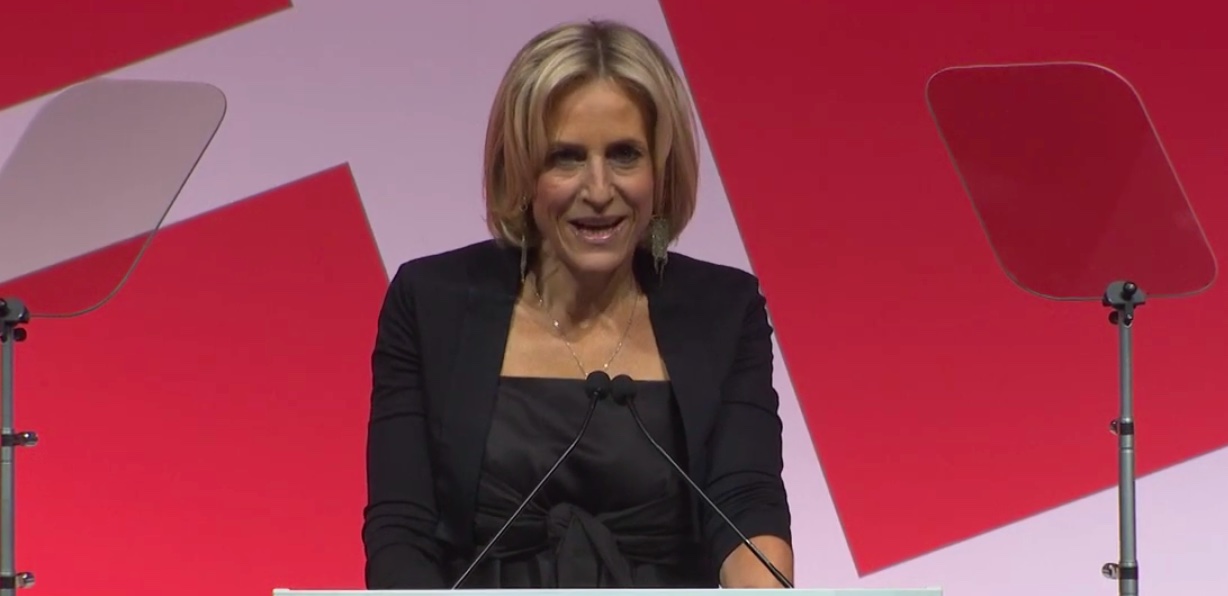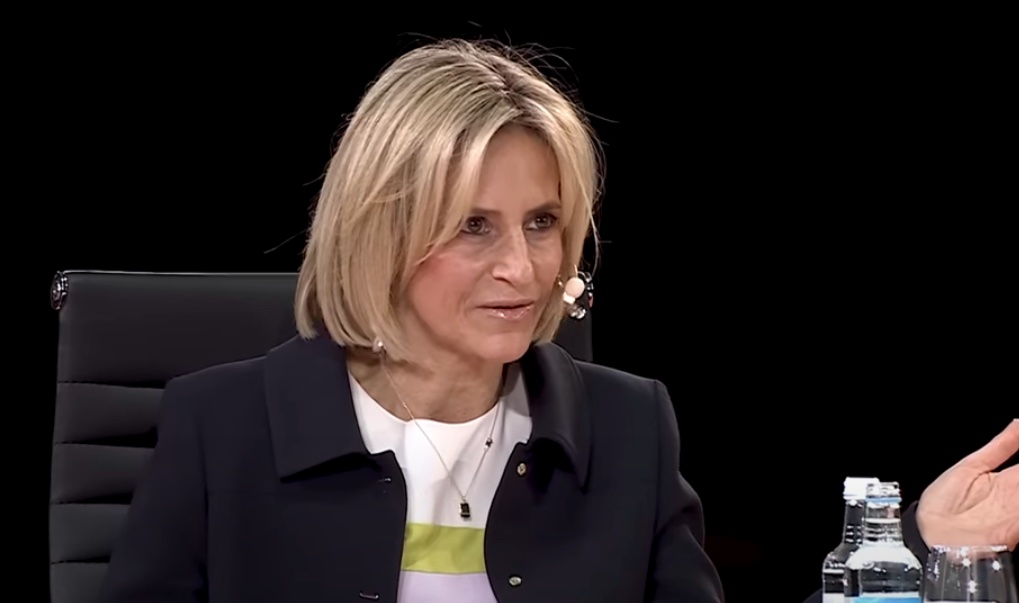Prime Video’s ‘A Very Royal Scandal’ takes us into the heart of journalism as we get the story behind Emily Maitlis’ now-infamous interview with Prince Andrew for the BBC’s Newsnight. The show recounts the events from the perspective of the journalist, who is equal parts excited and nervous about the job, and rightly so, as it becomes a landmark in her career. Reaching such a milestone and creating such big shoes to fill, one would believe that Maitlis’ career with the BBC would continue for years. However, at the end of the series, we see her coming to terms with the fact that her time with the news corporation is over.
Emily Maitlis Left the BBC to Embark on New Endeavors
Emily Maitlis worked for twenty years at the BBC. Having joined it in 2001, she rose the ranks rather swiftly and made a mark for herself, covering some very important issues. Her 2019 interview with Prince Andrew was game-changing. However, in 2022, Maitlis declared that she would be leaving the BBC and focus on new projects. Her revelation came alongside Jon Sopel, who had enjoyed a 40-years-long career at the BBC. He and Maitlis had co-hosted the BBC’s Americast podcast, and were considered major talents for the news outlet. This is why their departure was surprising, though not entirely shocking.
Some work news – @BBCJonSopel and I are going to launch a brand new podcast with @Global, exec produced by @dinosofos. It’s an amazing opportunity to do something we all love, and we are so thrilled Global is giving us this opportunity to be big and ambitious with this project.
— emily m (@maitlis) February 22, 2022
The duo revealed that they’d signed up with LBC’s parent company, Global, and were working on a “major new podcast.” She and Sopel had been toying with the idea of the podcast for some time, and when they pitched it to Global, the company was eager to commission it. A hefty pay raise is also said to have made the decision a bit easier. This was when Maitlis decided it was time to leave, noting that even though the BBC is great at many things, it wouldn’t have allowed her and her peers to work on their experimental podcast the way they wanted to. She found it better to go to a different place if that’s where the next thing is, rather than “hang on to something by [her] fingernails thinking this is the only place for [her].” Still, she called herself “fantastically lucky” and “incredibly grateful” for her time with her ex-employer and her colleagues and friends for “20 phenomenal years.”
Prioritising Family Also Drove Maitlis’ Decision
Apart from her professional ambitions, Maitlis revealed that focusing more on her family was also something she wanted to do going forward in her life. She talked about the busy hours she had at the BBC, how she would go to bed at 1 in the morning after a hectic day, wake up at 6 to get her kids to school, and then go back to work to go through the same thing all over again. While she loved the job, it started to take a toll on her. She also felt that she needed to find a balance between her work and her family, especially for her children. At one point, she had to decide when it was enough and time to move on.
She talked about being in the US while covering the 2020 US Presidential Elections and how one incident would lead to another, and she found herself caught up in a story that didn’t end for good until 2021. This is when she finally started to give serious thought to moving on and finding something different as the next step in the evolution of her career. She confessed that it was a risk she was taking, but things were made better by the people who were with her during that time and were going through a similar experience. She emphasized that she didn’t leave the BBC out of “anger or umbrage or boredom” but with a full plan in motion, knowing that even if she failed in this next step, she’d know that at least she tried.
BBC’s Issues With Impartiality are Believed to be one of the Major Factors Influencing Maitlis’ Decision
While Maitlis has mentioned that there was no bad blood with the BBC that led to her decision, her dissent towards her ex-employer’s approach towards certain things is not a secret. Maitlis has talked about her frustration over several instances, especially the friction created during the times she felt she was unfairly accused of lack of impartiality. A major instance such as this happened in 2020, when she called out Boris Johnson’s chief advisor, Dominic Cummings, in a monologue about him breaking Covid regulations. She claimed that her impartiality on the matter was called out, with the BBC seeking “to pacify” the government by issuing an apology, which didn’t make sense to her. Another such incident happened when she shared a Twitter post by Piers Morgan, which was labeled controversial. She also called Sir Robbie Gibb “the arbiter of BBC impartiality,” calling him the “active agent of the Conservative party” at her MacTaggart Lecture at the Edinburgh TV Festival 2022.

Maitlis referenced several incidents where she felt held back by the BBC’s “both sideism” form of journalism, believing that they were facing “the Patrick Mindford paradigm” in an effort to keep things balanced. She said that the journalists are “primed to back down, even apologize, to prove how journalistically fair we are being” if it “suits those in power to shut us up.” Calling it a lose-lose situation for the audience, she talked at length about her dissatisfaction with self-censorship that she felt had become a norm. She finds it important for journalists to be able to ask questions rather than be controlled by the people in power, telling them what they should or shouldn’t raise concerns or questions about.
In a 2023 interview, while talking about the newfound freedom in her endeavor outside of the BBC, Maitlis talked about feeling “less buttoned up, a bit more unvarnished” and things being more “organic,” as opposed to the bounds she felt she had to work within in her previous employment. Still, she noted that while mainstream media had a “slightly dark overtone,” in her opinion, she called the BBC “a robust, vigorously investigative” place, as opposed to what she has seen in international media.
Read More: Edward Vines: Where is Emily Maitlis’ Stalker Now?


You must be logged in to post a comment.